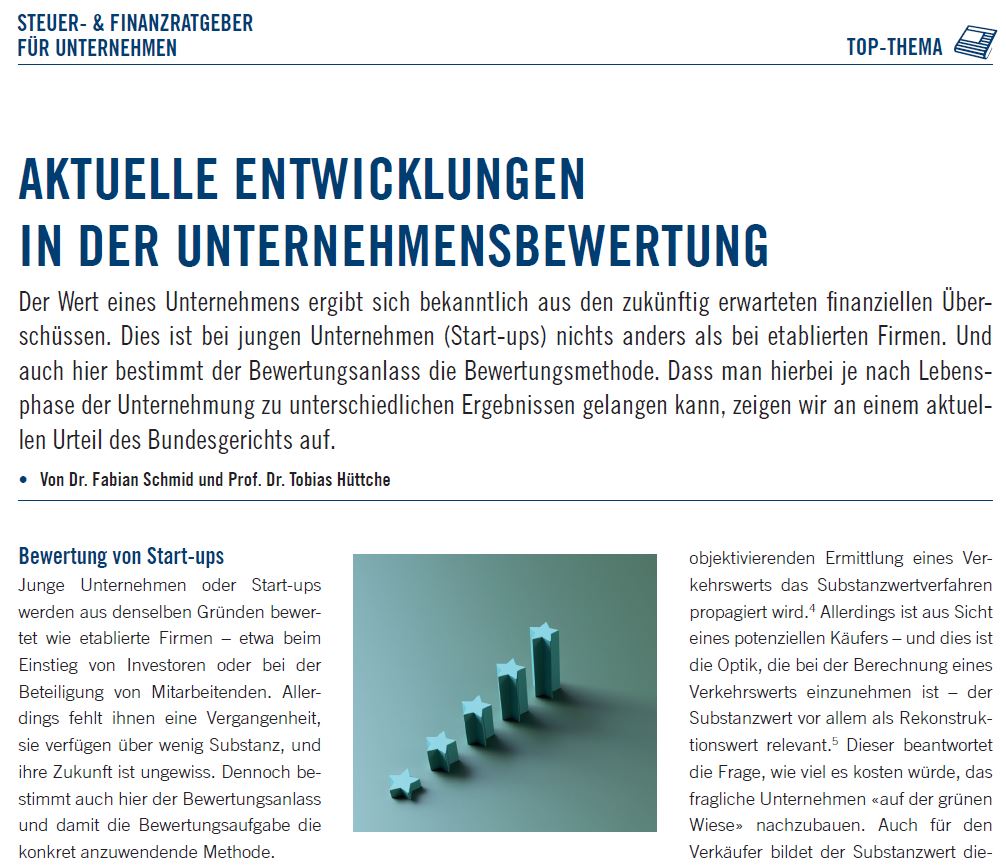Current developments in company valuation

As is well known, the value of a company results from the expected future financial surpluses. This is no different for young companies (start-ups) than for established companies. And here too, the reason for the valuation determines the valuation method. A recent ruling by the Federal Supreme Court shows that different results can be arrived at depending on the phase of the company’s life.
Valuation of start-ups
Young companies or start-ups are valued for the same reasons as established companies – for example, when investors come on board or when employees are involved. However, they lack a past, have little substance and their future is uncertain. Nevertheless, here too, the reason for the valuation and therefore the valuation task determines the specific method to be used.
A recent case dealt with by the Federal Supreme Court (judgment of 3.8.2023, 9C_261/2023) concerned the tax value of a shareholding. A shareholder contributed his newly founded service company to another company in his group in return for a loan. The shares were valued at CHF 5 million using the DCF method and the loan was offset against existing receivables from the shareholder. Shortly afterwards, the shares were written down and transferred back to the investor’s private level. The value adjustment was justified by negative developments after the valuation date, including a banking crisis and the war in Ukraine.
Read the article from the Tax and Finance Guide for Companies Newsletter 04 | April 2025 from WEKA Business Media here.

